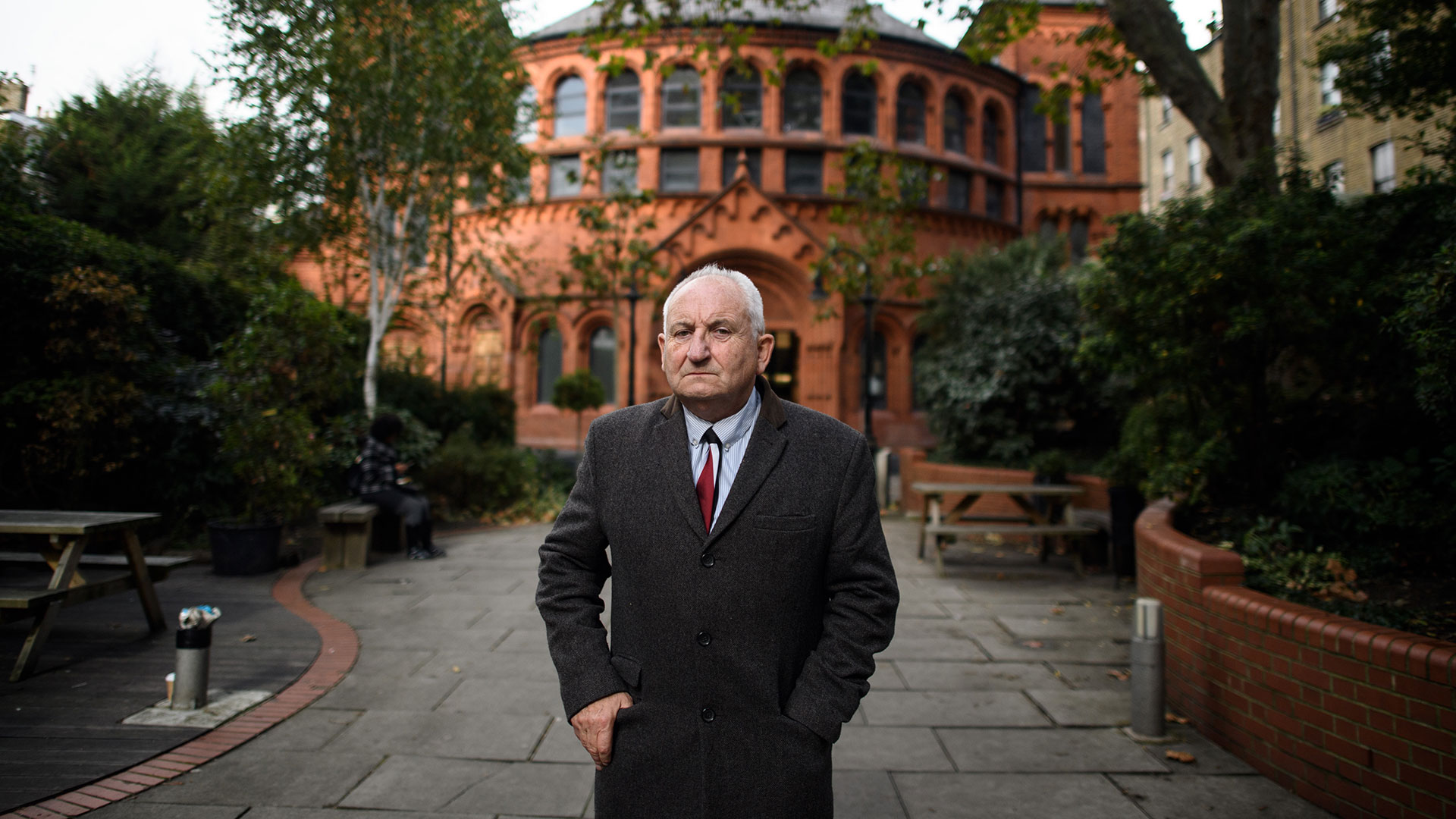Every so often I lose my cool, that is, if you accept I have any. I kind of boil over and end up sitting at the computer and writing stuff like this:
“‘No one should go hungry,’ said the philosopher, the social activist, the campaigner, the right and left-wing politician, the dog catcher, the rat chaser, the ferret fancier, the disc jockey, the deep-sea diver, the trawlerman, the sea captain, the ferryman, the vicar, the priest, the bishop, the archbishop, the cardinal, the Pope, the retired businessman, the doorman, the road sweeper, the bell ringer, the newspaper distributor, the journalist, the demolition expert, the acrobat, the lighting rigger, the small-service cook, the dry-stone wall reconstructor, the youth hostel cleaner, the pig farmer, the cow catcher, the cow tipper, the school teacher, the police officer, the military police officer, the doctor of divinity, the doctor of upholstery, the doctor of medicine, the doctor of letters, the pharmacist, the beautician, the reflexologist, the gynaecologist, the proctologist, the dental hygienist, the gun runner, the drug smuggler, the tobacconist, the gardener, the Prime Minister, the eldest son of the Monarch, the youngest son of the Monarch, the eldest daughter of the Monarch, the youngest daughter of the Monarch, the elderly sandwich eater, the young sandwich maker, and all other people, of every trade, yet poverty continues and people remain in poverty and though there seems complete agreement, no one seems to be able to do anything more than help a handful of people here, and a handful of people there – here a handful, there a handful, everywhere a handful – and still, even though there are handfuls all over the place, there’s very little evidence (in this sea of evidence) of unity in the face of tackling poverty, yet the poor carry on, and here and there there’s always someone saying: ‘Well, at least I’m helping a few people here, and a few of them there, and a few all over the place’ though there always seems more (and more) people needing help everywhere, though – let’s be honest – you can’t just abandon those people on the streets, turning your back on the people in the plight today, and so therefore you have to work to sort the pains of poverty out now for these people, though – now, let’s be brutally honest – the more effort you put into bringing relief to the poorest people today, the less time, energy or resources will be available for those who’ll be stuck in need tomorrow (those people who’ve yet to slip into need or be born into the sticky stuff), so therefore, in a sense you’ve prepare those people for grief that’s coming down the line, because most (or perhaps all) of your efforts have been spent on helping those in the grief today – helping those people to cope – whilst hoping, all the while, that they might just get out of the grief themselves, yet in not doing the grief-prevention programmes, adjustments or budgets you have to make, you’re always playing catch-up, you’re always stop-gapping, you’re always treading water – as well as a host of other cogent and depicted descriptions of ‘Why, oh why, with all of this uniformity of thinking and abhorrence about why nobody should be poor’ we continue, as a society, to manufacture the conditions that create more and more poor people with alarming regularity, whereas what we should be doing is pulling back, pulling up, and auditing what’s happening, asking ourselves if we think that just another handout here, there, or everywhere, will suffice any longer, or, instead, if we think that we should be offering a hand up to set someone on the road to taking control of their own circumstances – which, in any case, can be rather difficult because most people think of ‘the poor’ as another species that needs administering to (or supported like the bottlenose whales or the white-sided dolphin) – yet perhaps it’s time to try to help people out of poverty by involving them in their own redemption, not just patronising them by assuming that they’re so damned useless that they simply need to be left alone, lying down in the corner on a bed of government support, and perhaps it’s time to try to help people to help themselves on the road to better, more prosperous, more fulfilling lives so that their children can also have a better chance at life and avoid the alternative, which all too often, is an existence stuck in emptinesses.”
Reasonableness restored, I throw most of my rants away. Occasionally, I return to some of them and hope I can make some sense of the writing; hoping that, on a second or third reading, they might carry within them some kernel of usefulness.
The above example is quite typical of this type of outburst, though it might just be a letting off of steam. Like most people, I often get cheesed off and end up asking myself simple questions.
Why is it that (with only very few exceptions) we hate poverty, but yet accept that it still surrounds us? Why is it that, all too often, we focus on the presenting problems, the symptoms of poverty, but not its causes? What needs to change to enable us to get to those root causes, acknowledge them, accept them, and then launch an all-out effort to dismantle and prevent them?
The big problem, of course, is all the little (or big) projects, pilots and initiatives that never seem to tackle the central problem of removing the causes of things; the efforts that concentrate on the problem itself, that see things like rough-sleeping and homelessness as a thing in itself.








